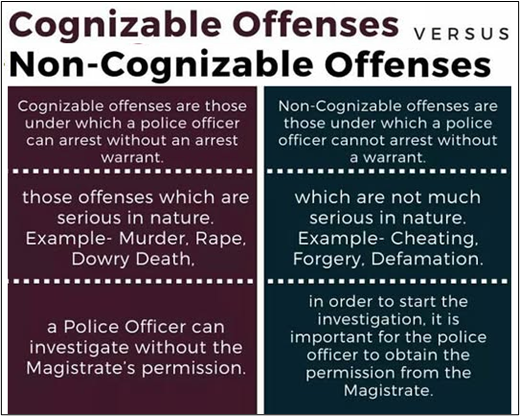PREVIOUS
SC Ruling on Non-Cognizable Offences
January 10 , 2025
345 days
677
0
- The Supreme Court clarified the parameters for police investigations into serious and non-serious crimes.
- The Court has distinguished between cognizable and non-cognizable offences, emphasising the importance of safeguards in place for non-cognizable offences.
- The Section 167 of CrPC empowers a Magistrate to remand an accused person to different forms of custody during the investigation process.
- The Sub-section (2) of Section 167 is particularly significant as it lays down the procedure for remand and sets a maximum limit of 15 days for police custody.
- Cognizable offences allow police to initiate investigations without prior approval.
- Non-cognizable offences require a magistrate’s order before police can act.
- This distinction is crucial for maintaining the balance between individual rights and state authority.

Leave a Reply
Your Comment is awaiting moderation.


